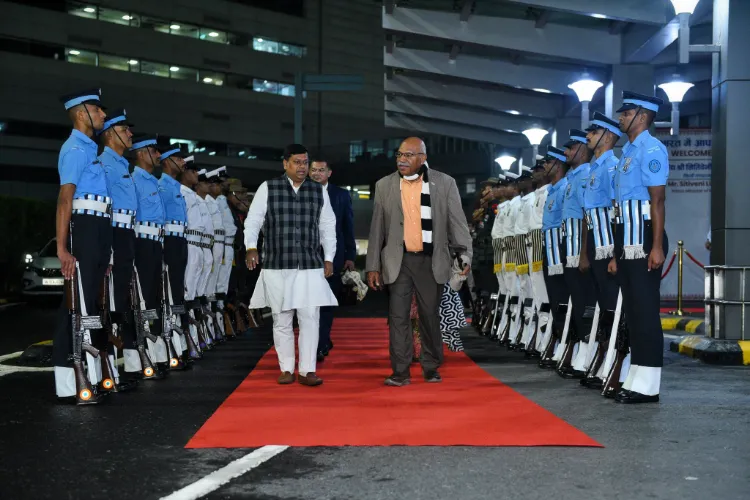
New Delhi
Prime Minister of the Republic of Fiji Sitiveni Ligamamada Rabuka arrived in New Delhi on Sunday for a four-day visit, accompanied by his spouse, Suluweti Rabuka.
He was welcomed at the airport by Union Minister of State for Education Sukanta Majumdar.
In a post on X, Ministry of External Affairs spokesperson Randhir Jaiswal welcomed Rabuka and said that his visit will deepen the India-Fiji partnership across diverse sectors:
Warm welcome to PM Sitiveni Rabuka of Fiji @slrabuka as he arrives in New Delhi on his first visit.
— Randhir Jaiswal (@MEAIndia) August 24, 2025
PM Rabuka was received by MoS Education & DoNER @DrSukantaBJP at the airport.
The visit will further deepen 🇮🇳-🇫🇯 partnership across diverse sectors. pic.twitter.com/zLWW5rW5GL
"Warm welcome to PM Sitiveni Rabuka of Fiji as he arrives in New Delhi on his first visit. PM Rabuka was received by MoS Education & DoNER Sukanta Majumdar at the airport. The visit will further deepen the India-Fiji partnership across diverse sectors," Randhir Jaiswal said.
Sitiveni Ligamamada Rabuka, accompanied by his spouse, Suluweti Rabuka, will visit India from August 24 to 27, the Ministry of External Affairs said.
The visit will begin in New Delhi, where the Prime Minister Rabuka will be received at IGI Airport, after which he will have a meeting with a Cabinet Minister. On August 25, Rabuka will lay a wreath at Rajghat before meeting Prime Minister Narendra Modi at Hyderabad House, which will be followed by an exchange of MoUs and press statements. He will then call on President Droupadi Murmu at Rashtrapati Bhavan.
Continuing his engagements, on August 26, the Fijian leader will deliver a lecture at Sapru House, organised by the Indian Council of World Affairs. The visit will conclude with his departure from Delhi on August 27.
The upcoming engagement also followed recent high-level exchanges between the two countries.
ALSO READ: C Shukkur and Sheena set off a quiet 'remarriage' tsunami among Muslims
India's links with Fiji commenced in 1879 when Indian labourers ('Girmitiyas') were brought there under the indenture system to work on sugarcane plantations. Between 1879 and 1916, around 60,553 Indians were brought to Fiji. Beginning in the early 20th century, Indian traders and others had also started arriving in Fiji. In 1920, the indenture system was abolished. Before Fiji's independence in 1970, India had a Commissioner since 1948, who was later upgraded to High Commissioner after independence.
